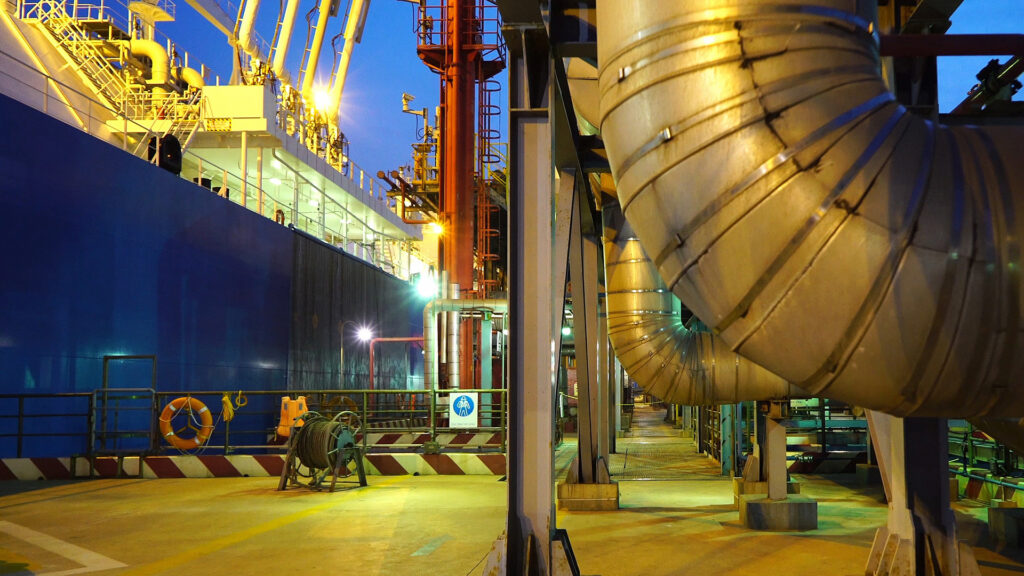Shipping emissions
The Committee on Climate Change recommends that shipping emissions be included in the UK’s overall emission reduction targets.
The UK Committee on Climate Change (“CCC”) has recommended that emissions from shipping be included in legally binding targets to cut the UK’s overall emissions under the Climate Change Act. According to David Kennedy, the Chief Executive of the CCC, the UK’s shipping emissions are “too big and too worrying to forget about”. In its recent report, the CCC estimates that emissions from shipping could account for up to 11% of the UK’s total emissions allowed under the Climate Change Act targets. Consequently, the CCC recommends including emissions in the overall emission reduction targets and carbon budgets, which are five-yearly emissions limits also required under the Climate Change Act.
The Climate Change Act sets a target to reduce UK emissions by 2050 by 80% below 1990 levels. Currently, emissions from shipping and aviation are not included in these reduction targets or in carbon budgets. However, the Climate Change Act requires the UK government to decide formally by the end of 2012 whether it will include aviation and shipping in the UK’s carbon budgets. The CCC will issue its final recommendation on the matter to the UK government early next year, but the CCC’s report gives a strong indication that the CCC will call for the inclusion of shipping in the UK’s overall emissions targets.
In addition to recommending the inclusion of shipping emissions, the CCC report urges the UK government to support international measures to reduce emissions from the international shipping industry, such as a global cap and trade system or a global levy on fossil fuels. The CCC stressed the importance of a global system and urged UK ministers to press for such a solution at the UN climate talks in South Africa, which concluded on 11 December 2011. Similarly, the UK Chamber of Shipping, which worked with the CCC on its report, has also called for a global solution to international shipping emissions, to avoid potential trade distortions and negative competitive impacts on the UK shipping industry.
Earlier this year, the International Maritime Organisation adopted mandatory measures to reduce emissions from international shipping. The measures, which will apply from 1 January 2013, set a minimum efficiency standard for new ships and require all ships to adopt energy management plans. Whilst the CCC acknowledged that the IMO regulations are a step in the right direction, it indicated there is significant scope to be more ambitious in tackling international shipping emissions. The CCC report sets out several technical and operational measures that could be used to reduce shipping emissions, such as deploying towing kites or sails to harness wind energy, cleaning hulls more often to reduce fuel consumption, reducing travel speeds, installing solar panels to reduce energy use and using cleaner fuel supplies such as biofuels and LNG.
Although the CCC report advocates the inclusion of shipping emissions in the UK’s reduction targets, it also acknowledges the difficulties in estimating with certainty what percentage of the UK’s overall emissions is attributable to shipping. This is due to issues concerning the appropriate method for calculation, the lack of readily available data and the fact that most ships entering or leaving the UK begin or end their journey in other countries. Basing their data on the distance travelled by all vessels journeying to the UK and considering the fuel efficiency of these vessels, the CCC estimates the UK’s shipping emissions to be approximately 12-16 million tonnes per year.
Acknowledging the complexities in obtaining accurate emissions data for the UK shipping industry, whilst also stressing the potential impact shipping can have on the UK’s total emissions, the CCC suggests three options for the inclusion of shipping in the UK’s 2050 carbon budgets:
- Immediately including shipping emissions in the 2050 targets and carbon budgets.
- Including shipping emissions in the 2050 targets and carbon budgets once further progress is made on a methodology to calculate shipping emissions accurately.
- Immediately including shipping emissions in the 2050 targets and including them in the carbon budgets when further progress is made on a shipping emissions calculation methodology.
Next steps
The CCC will formally advise the UK government in March 2012 of its recommendation on whether to include shipping in carbon budgets. Under the Climate Change Act, the UK government will then have until the end of 2012 to make its final decision. In the meantime, ship owners and operators should remain aware of these potential impending changes and should closely follow any developments. HFW will publish further updates.
Given that the UK government will not make its final decision until the end of 2012, owners and charterers may wish to approach the UK government directly to voice an opinion on the CCC’s proposals. A particular concern for many industry participants will certainly be the potential for negative competitive impacts on the UK shipping industry. Those affected may also want to advocate for or against a particular methodology for calculating shipping emissions, as this can greatly impact the reduction targets set in the carbon budgets.
Even though the UK government is not obliged to adopt the CCC’s recommendations, the reduction of emissions from the shipping industry is a topic that is likely to remain at the top of the environmental agenda in the UK. If the CCC’s current proposals are not adopted by the UK government, it is probable that the UK shipping industry will be subject to some form of emissions regulation in the coming years. Indeed, the IMO’s emissions regulations will apply from 2013.
Consequently, ship owners, builders and charterers should consider taking steps now to prepare for the possible imposition of emission reduction obligations. Owners, charterers, ship designers and ship builders should also consider how responsibility for complying with future emissions regulations should be allocated in all new contracts.
HFW tips
Consider making representations to the CCC and the UK government regarding the CCC’s proposal. Assess the feasibility of implementing emissions reduction technologies. Develop policies and practices governing the apportionment of responsibility for complying with any future emissions regulations in charters and other relevant contracts.









